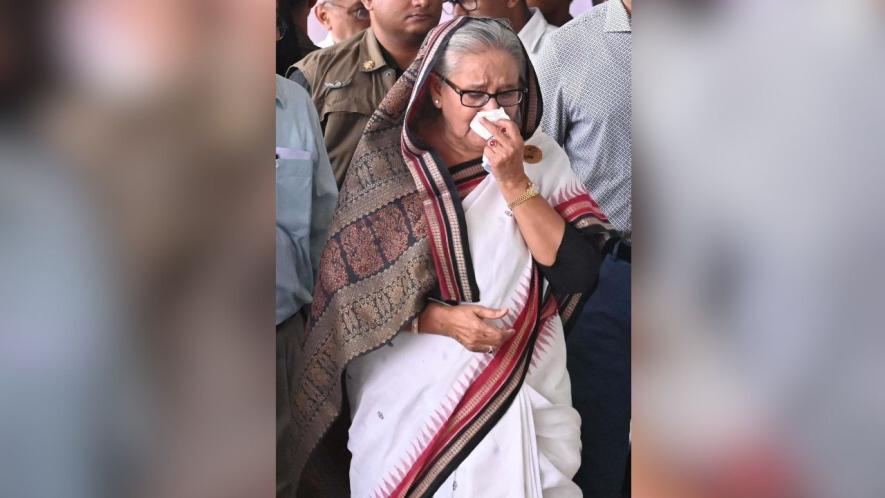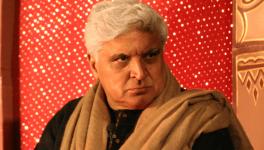Bengal: Mamata-Centre Standoff Over Bangladesh Continues as Dhaka ‘Objects’

Sheikh Hasina.
Kolkata: The Union government has reportedly expressed its strong displeasure over the West Bengal government’s remarks pertaining to the Bangladesh situation, where massive anti-government student protests are going on. On July 21, during a public rally, Chief Minister Mamata Banerjee had spoken of “providing shelter” to all those “who knock on Bengal’s doors” during the turmoil in the neighbouring country.
Bangladesh Foreign Minister Mohammed Hasan Mahmud has submitted a note on this to the Indian External Affairs Ministry (MEA), saying Banerjee’s remarks could “confuse” people.
Meanwhile, West Bengal governor C V Ananda Bose, has sought a report under Article 167 on the reported comment made by Chief Minister publicly, saying “…But I can tell you this, if helpless people come knocking on the doors of Bengal, we will surely provide them shelter.”
The MEA, too, reportedly said that protests in Bangladesh were the country’s “internal matter.”
Meanwhile, on July 24, some diplomats stationed in Dhaka visited some of the affected sites in the city and were reportedly “stunned” by the scale (of violence), Bangladesh Foreign Minister was quoted as saying.
“They were stunned. Many of them (diplomats) said this is a shame. Many of them shared this feeling. All of them said “it is your internal affair but we are with you,’” the minister, accompanied by the diplomats, told reporters in Dhaka.
Though they had plans to visit all the devastated areas, due to severe traffic congestion, the diplomats could visit three sites: BTV, metro rail station, and the Bridges Division, it was said.
What’s Going on in Bangladesh?
In Kolkata, Newsclick spoke with Santanu Dey, who is an expert on Bangladesh, and is Associate Editor of CPI(M)’s journal Marxbadi Path. Dey condemned the use of force on the protesting student community in Bangladesh, saying that “no elected government should do such a thing”.
However, he expressed dismay at the turn of events in the neighbouring country, and said: “We want Bangladesh should be guided by the spirit of its freedom struggle -- the famous Muktijuddho -- and by the spirit of the Shahbag movement (2013) which was non-communal in nature. This spirit is needed not only for Bangladesh but for this side of Bengal and the entire sub-continent”
Dey pointed out that it was the Sheikh Hasina government that had cancelled the quota (for jobs) in 2018. “After 2018, the appointments made were not done through the quota system. This year, on June 5, the High Court dismissed the decision of the Hasina government to withdraw the quota system. Challenging this, the Hasina government went to Supreme Court. Even the reform in quota system was a penchant of the Hasina government, the why did the student suddenly come to streets and face security forces’ bullets? So many lives were lost. Who used students as their armour?” he asked.
According to Dey, the “scale of mayhem, fire across the country shows that everything was meticulously planned. Who planned a jail break of 200 history-sheeter criminals in Bangladesh? What relation does the quota movement have with Padma Setu? The ministry that looks after this bridge came under attack and a toll plaza and 119 cars of the ministry were set on fire. The oldest television station of Bangladesh – BTV -- was set ablaze. Internet cables were destroyed in Mahakhali data centre and ISP providers lines were vandalised, leading to destruction of internet service of Bangladesh. Even a Bangladesh Metro station was set on fire. who did all these? The protesting young students or someone else?”
The senior journalist said that the role of the “Jamaat and of US imperialist interests and Western countries should be re- examined.”
He said the dream of Bangladesh’s freedom struggle was for the establishment of a democratic society. To augment this, there is need to intensify the struggle for the establishment of community-held resources instead of individual-held resources.
“That country has slowly moved away from that dream. Now the assets of that country have been trafficked to other countries. Jobs and employment opportunities did not reach the desired level. Instead, what has increased is exploitation and iron rule,” he said, adding that due to the rise in unemployment rate, frustration has gripped the youth.
Economic growth is occurring without job creation and the younger generation has been at its receiving end. “There is extreme anxiety among youth on the issue of getting jobs. Many students have been forced to leave the country,” he pointed out.
According to a World Bank estimate, in 2022, amidst youths aged 15 to 24 the rate of unemployment in Bangladesh was 12.9%. In India, at that time, the corresponding rate was 23.22%.
“The real culprit behind jobless growth is neo-liberalism. The Far Right everywhere holds neo-liberalism as the cause of jobless growth and what they then start doing is ‘othering’. At the receiving end of this ‘othering’ in some places are Muslims or Dalits, and in many places the quota system,” he said.
“When no work is available the quota system becomes a thorn… what is needed in such a situation is job-oriented growth. Who will demand this from the government -- Awami League or BNP, or Jamaat or the progressive socialism-oriented camp of Bangladesh?” Dey asked.
Get the latest reports & analysis with people's perspective on Protests, movements & deep analytical videos, discussions of the current affairs in your Telegram app. Subscribe to NewsClick's Telegram channel & get Real-Time updates on stories, as they get published on our website.























